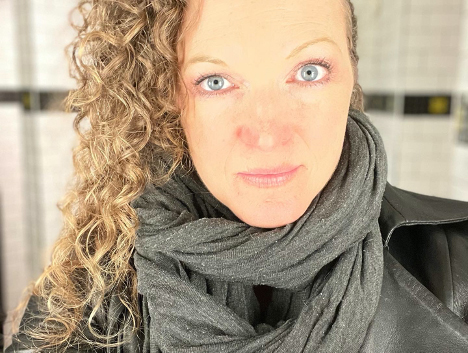by Amanda Ikens, East Owner Resources Coordinator
Vanessa Tortolano recently returned to teaching kombucha brewing and other alternative beverage classes at Willy Street Co-op after a long hiatus. She has a wealth of knowledge to share, and I wanted to take this opportunity to introduce her. If you’re interested in brewing your own kombucha, keep an eye out for Vanessa’s upcoming classes!
 Q: How did you discover kombucha?
Q: How did you discover kombucha?
Vanessa Tortolano (VT): “I discovered it while working as a cashier at Willy Street Co-op. People kept coming through my line with it and so I decided to taste it and, when I did, I noticed that I got a great boost of energy and was able to be more alert and awake without caffeine.”
Q: How did you learn how to ferment and make kombucha?
VT: “A customer gave me a SCOBY [symbiotic culture of bacteria and yeast] with instructions to make my first batch.”
Q: What is your background in brewing?
VT: “I have been brewing kombucha for over 16 years and was a commercial brewer for 14. I now brew many fermented beverages at home, offering public and private consultation.”
Q: What challenges do homebrewers face when making kombucha at home?
VT: “Some challenges I experienced in the beginning were just when I was experimenting a little too much. I would end up with some nasty tasting kombucha because I wanted to try doing something with tea or earl gray. That didn’t work out very well for me. As for keeping up with it, it’s when I make a lot of different ferments all at the same time it can sometimes be a little challenging to keep up with everything at the right times. Luckily I know how to fix stuff and also what to do with ones that have aged out too long. Usually it’s a vinegar product of some sort that I end up making it into. A lot of times it’s salad dressing.
“Also making sure that fruit flies do not become a problem!”
Q: You also teach classes on water kefir—what is that?
VT: “Water Kefir is a different kind of SCOBY. It is a cellulose structure that is like gelatinous grains. It is different from milk kefir grains. They are used to convert sugar water into a probiotic fermented drink that can be quite fizzy.”
Q: What is your favorite part of teaching classes?
VT: “I love the discovery and enjoyment of the participants. I love sharing new information with people who are interested in learning new things.”
Q: What challenges do you come across while teaching classes?
VT: “Not a lot. I love teaching and usually have very enthusiastic participants. I think the biggest challenge is answering all the questions and conveying information in the time constraints. There is always more to learn.”
Q: What can participants expect to take away from one of your classes?
VT: “I would expect to come away having had a good time and taking away new knowledge to work with at home.”
Q: What do you see for the future of fermented beverages?
VT: “I think that I would like to see more, but I am not sure they will become super mainstream. They are doing okay, but the options for any product on the shelf are ridiculously high. I think that there will be, in
the future, more local products and more people doing home ferments as costs continue to rise and we see shipping problems and supply chain strain.”
Q: Do you ferment anything else, and if so, what is your favorite thing to work with and why?
VT: “I ferment all kinds of stuff. I think my favorite right now is turmeric soda. It is just so tasty to me because it's not sweet but very much turmeric. It also really helps my body feel nice with all the wonderful benefits turmeric has to offer.”
Q: What do you like to do in your spare time? What keeps you busy?
VT: “In my spare time, I do stand-up comedy, improv comedy, ferment, and grow things. Currently, I am studying to become a Soil Food Web Consultant. I am a couple of weeks away from my Soil Microbiologist Lab Certification, which is wildly exciting. I've been looking at soil microbes for over a year now and I am continually fascinated.”
Q: Is there anything else that you would like to tell the readers?
VT: “Perhaps this is a good place to mention we might all want to do our best to continue supporting local producers and farmers. It would be wonderful if we could subsidize more diverse and communal farming, growing, and production. As globalization destabilizes we are all going to need local networks of good people teaching and helping our communities stay strong, fed, and healthy. My next goal is to be able to help more people have rich and fertile soil, so as not to have to depend so much on imported fertilizers and so we can build and strengthen our local soil communities. Stay curious and flexible!”